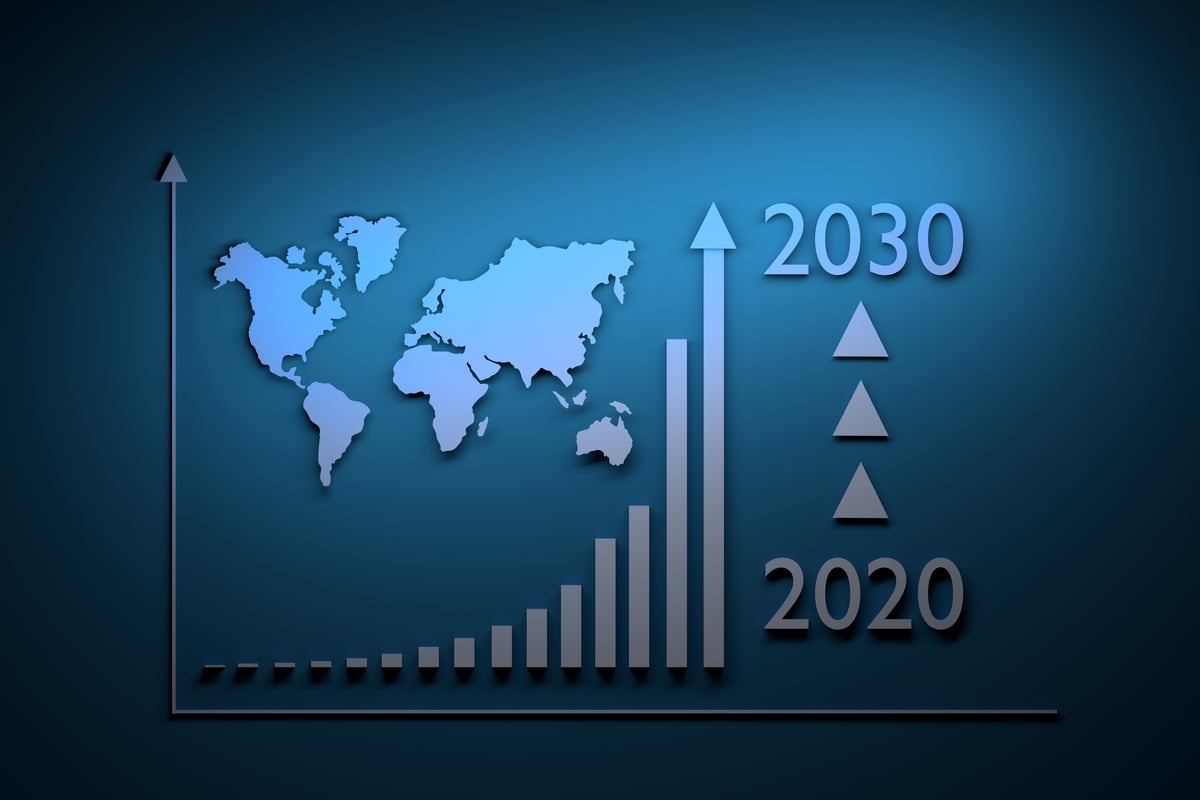On this day in economic and business history...
Google (GOOG +1.26%) went public on Aug. 19, 2004. The popular search engine had initially planned to go public in a range of $108 to $135 per share and sell 11.6 million shares, but complications surrounding Google's unusual "Dutch auction" IPO wound up slashing the first-day sale price to $85. As a result, Google insiders drastically reduced their offering from 11.6 million to 5.5 million, although Google itself went ahead with plans to sell 14.1 million shares. When Google finally hit the market, it enjoyed a nice 18% pop to just more than $100 per share, but few analysts seemed particularly impressed at the time.
Google's road to the public markets was far from smooth. The decision to use a Dutch auction format, in which a high price is put forth and gradually reduced until all lots are sold, certainly contributed to Google's underwhelming first-day valuation. This was four years after the dot-com bubble burst, and few investors were ready to queue up for another overpriced Internet stock -- this may shock today's investors, but after its first trading day, Google was trading at a forward P/E of 41, compared to Yahoo!'s (NASDAQ: YHOO) forward P/E of 60.
At the time, many analysts believed that Yahoo, with a $39 billion market cap, justified a higher valuation than the $27 billion Google because it was "a more diversified company." Google's high share price, as well as the potentially illegal interview co-founders Larry Page and Sergey Brin gave to Playboy a week before the IPO filing (purportedly against quiet-period rules), were also cited as confounding factors that tamped down investor interest.
The difference between the reactions to Google's IPO and those to earlier dot-com stock-splosions is almost stunning when viewed in hindsight. Analyst Brian Bolan of Marquis Investment Research went so far as to say "I would not be stunned if Google closes down." Michael Cohen of Pacific American Securities noted: "A market capitalization valuing Google as a mature company is assuming a best-case scenario which isn't a for-sure outcome. It still has a long way to go to justify growing into that kind of market value."
These analysts had reason for skepticism: Google was the most valuable major tech IPO of all time at the end of its first day, and it closed Aug. 19 with one of the largest first-day market caps of any IPO in American market history. Despite its status as the undisputed global search leader -- Google conducted more than half of all Web searches by 2003 -- Google was still almost entirely a search company. Gmail had begun its beta testing period earlier in 2004, but it wouldn't be fully launched until 2007. Google Maps wasn't available until 2005, and Google didn't acquire YouTube until late 2006. Its 2004 annual revenue of $3.2 billion was already approaching Yahoo!'s annual revenue of $3.6 billion, but Google's $399 million net income seemed a bit disappointing compared to Yahoo!'s $840 million net income for 2004.
Investors saw plenty of long-term potential, though. Two months after its IPO, Google's shares had already doubled. The stock has never finished below its IPO price of $100 per share. Nine years after it first went public, Google was worth more than $850 per share -- a 720% gain for day-one investors. Google has certainly earned those gains -- its 2012 net income of $10.7 billion meant that its bottom line had grown at an annualized rate of 51% for eight years.
The perfect patent for summer
Millions of children (and adults) seek out frozen treats during the hot summer months, and Popsicles are often in high demand. These sweet treats were invented in 1905 by 11-year-old Frank Epperson, who eventually received a patent for his "frozen confectionery" on Aug. 19, 1924. However, Epperson lacked the resources to push his product nationwide, so he sold the rights a year later to the Joe Lowe Company, which cranked out more than 60 million Popsicles by 1928.
The company eventually changed its name to Popsicle Industries, and that company bounced between owners over the decades before ending up as part of Unilever (UL 0.29%) subsidiary Good Humor in 1989. Somewhere between Joe Lowe and Unilever, Popsicle created a mascot named Popsicle Pete, a now-infamous comic strip character who was parodized in terrifying fashion by Man Comics. Google him, if you dare.
The toymaker's empire
Two of the world's largest toymakers joined forces on Aug. 19, 1993, when Mattel (MAT +4.48%) and Fisher-Price agreed to a stock-swap merger worth about $1 billion. This move created the greatest challenge to reigning toy-industry leader Hasbro (HAS +0.98%), which at the time was coming off a year in which it reported $2.54 billion in sales shortly after completing its acquisition of Tonka. The Fisher-Price-enhanced Mattel also boasted a combined $2.54 billion in annual sales for 1992.
The two companies competed fiercely following the merger, just as they had before the toymakers' consolidation took place. After two decades, Mattel appears to be the winner, as its shares have posted a cumulative gain of 405% compared to Hasbro's 285%. That could very well change in the near future: Neither company has held the lead in share-price appreciation for long over the past decade.






